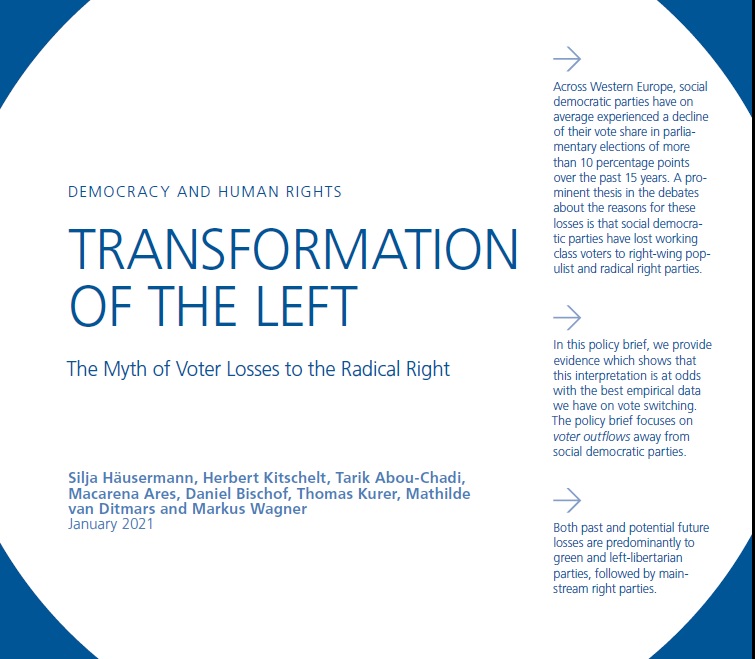
Professor of European Politics at Nuffield College, University of Oxford. Elections, parties, social democracy and the radical right. he/him. 🏳️🌈
How to get URL link on X (Twitter) App


 The volume brings together some of the leading researchers in the field and covers 4 larger areas: (1) Introduction with conceptual framework and main findings of the research (2) Voter flows (3) Preferences and choices (4) Determinants of electoral outcomes
The volume brings together some of the leading researchers in the field and covers 4 larger areas: (1) Introduction with conceptual framework and main findings of the research (2) Voter flows (3) Preferences and choices (4) Determinants of electoral outcomes 
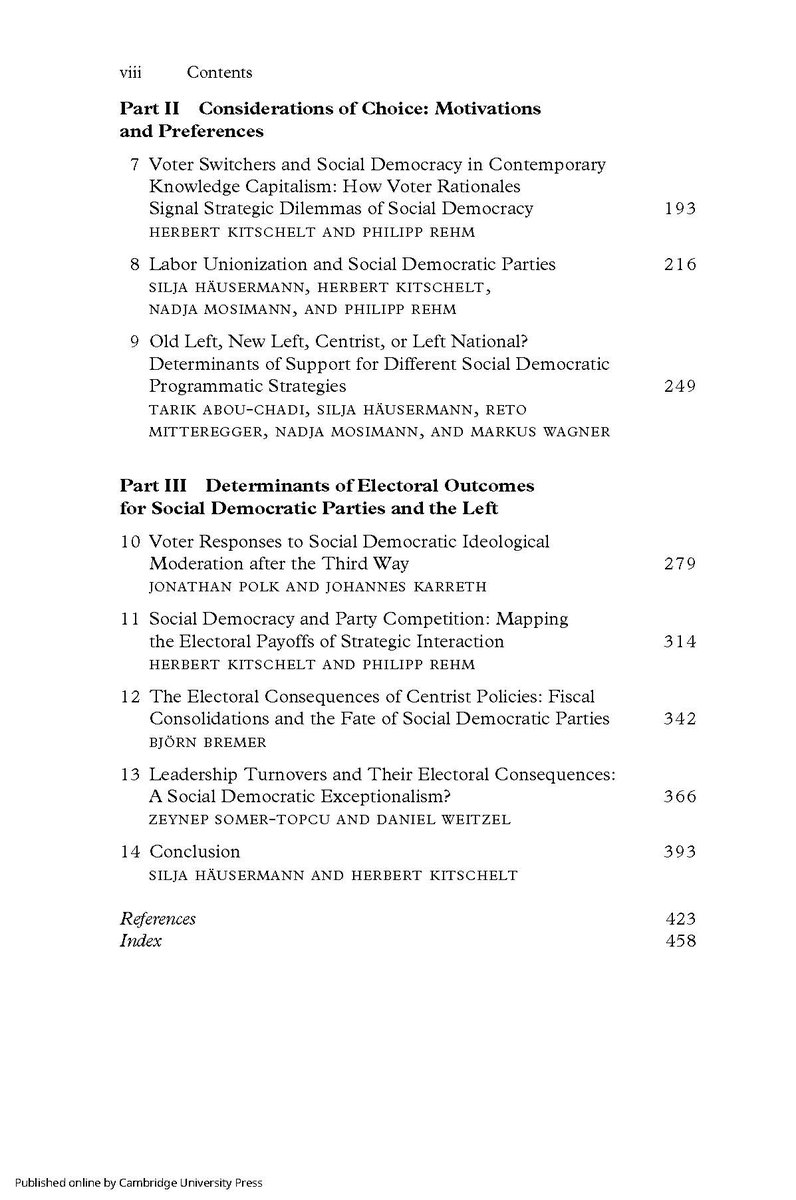
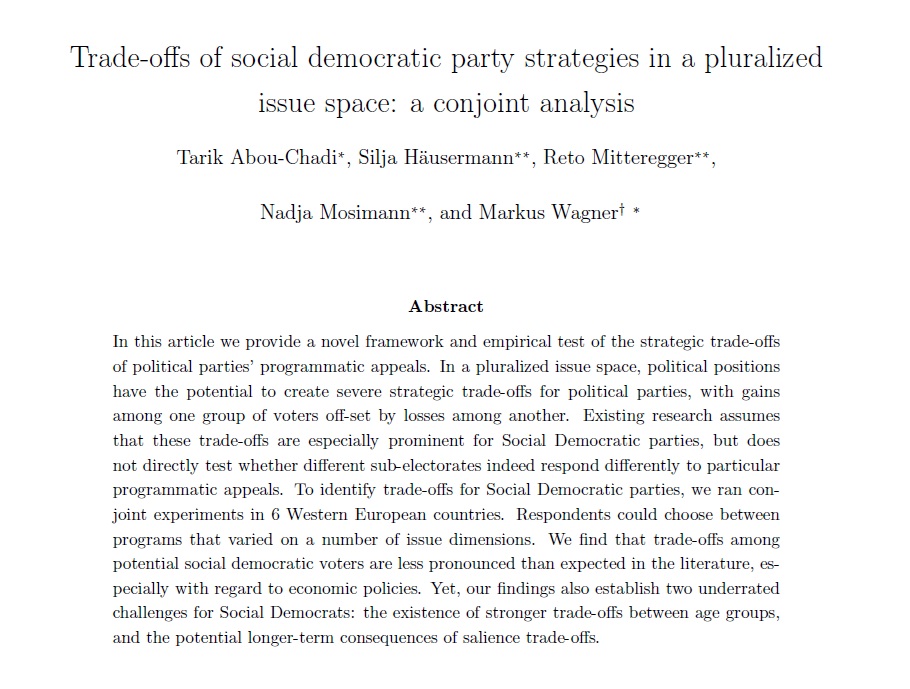
 Discussions about SD strategies often assume trade-offs in appealing to different groups. Simply put, progressive policies could attract young, educated, middle class voters but might alienate older, less educated, working class voters. But there is little evidence on this.
Discussions about SD strategies often assume trade-offs in appealing to different groups. Simply put, progressive policies could attract young, educated, middle class voters but might alienate older, less educated, working class voters. But there is little evidence on this.
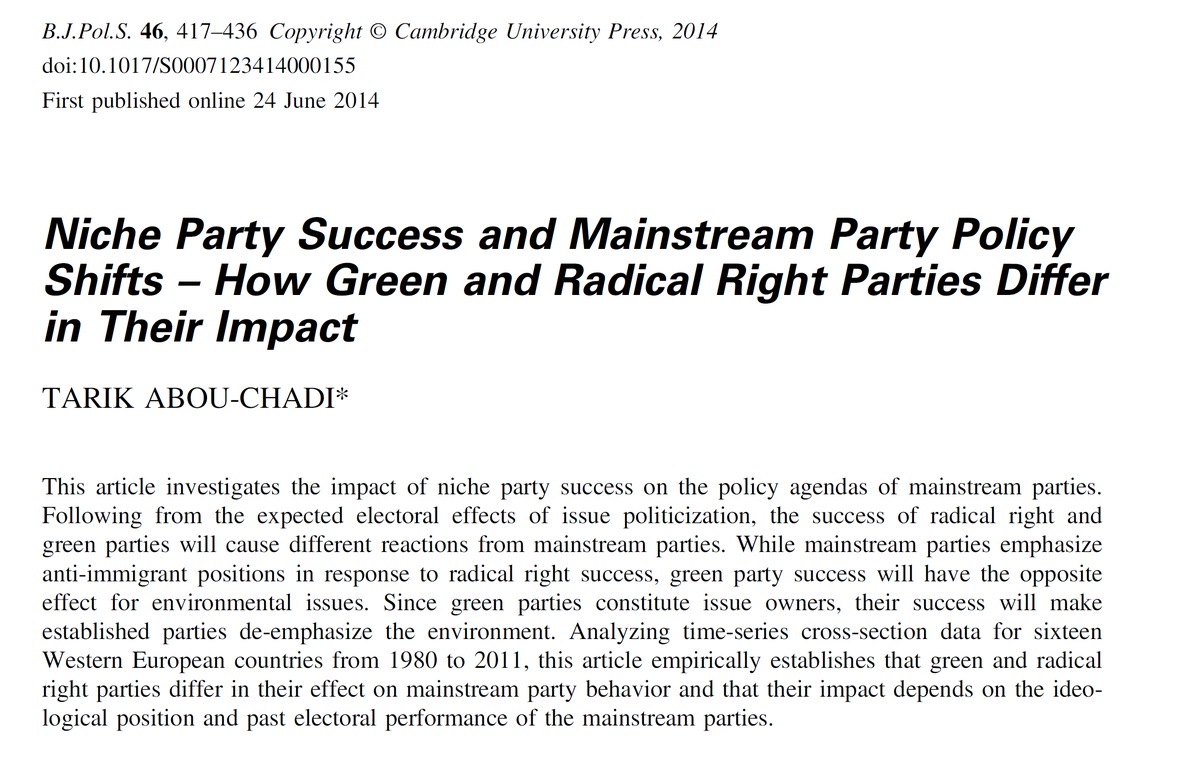
 Valence issues are issues where there is general agreement about a goal (or problem) and competition is largely about salience/competence. Like crime or economic growth, the environment was a prime example of a valence issue. People don't think destroying the environment is great
Valence issues are issues where there is general agreement about a goal (or problem) and competition is largely about salience/competence. Like crime or economic growth, the environment was a prime example of a valence issue. People don't think destroying the environment is great
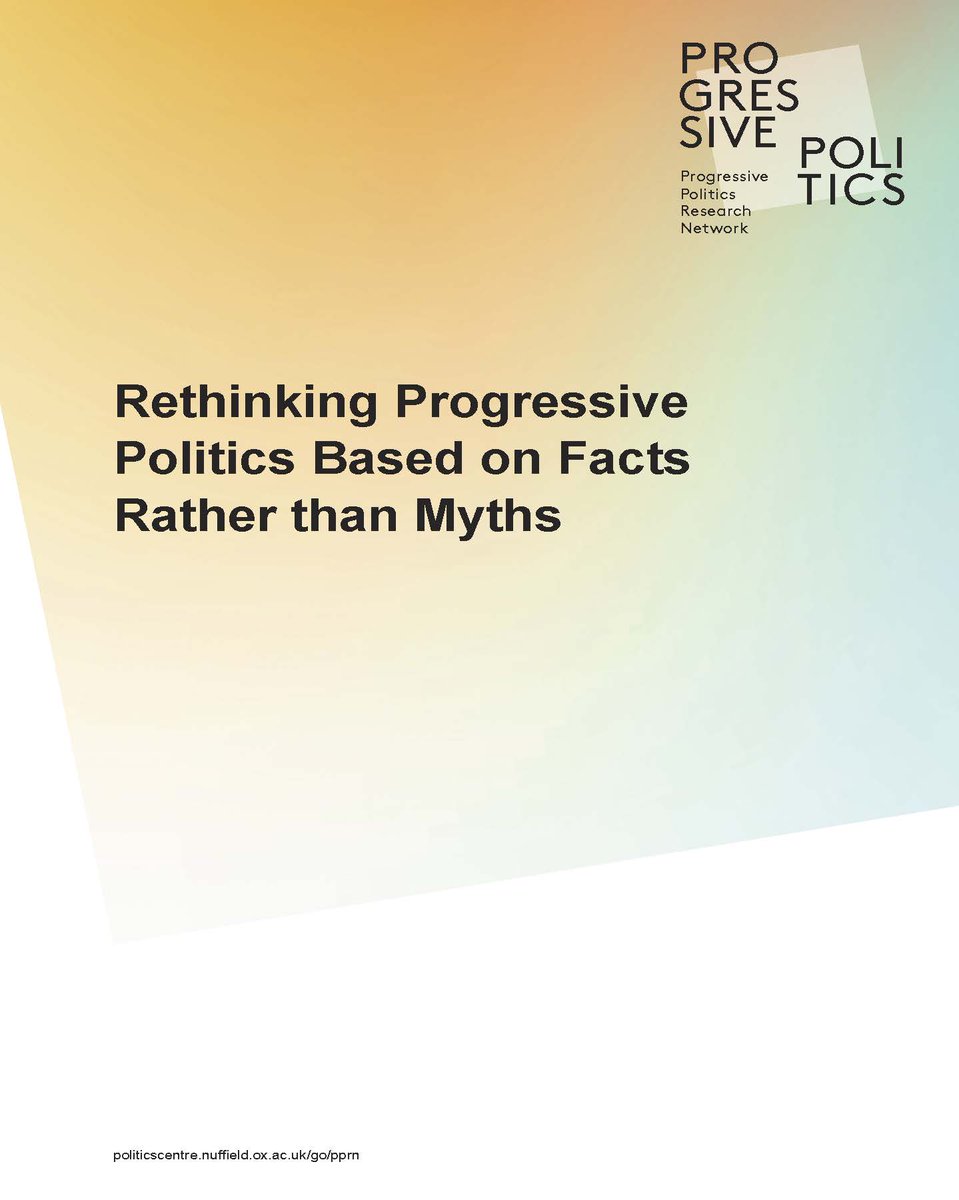



 With this network, we want to communicate research findings with a broader audience, political practitioners and the media. Our main output will be research briefs on a different theme every year. There will also be a podcast at some point.
With this network, we want to communicate research findings with a broader audience, political practitioners and the media. Our main output will be research briefs on a different theme every year. There will also be a podcast at some point. 
